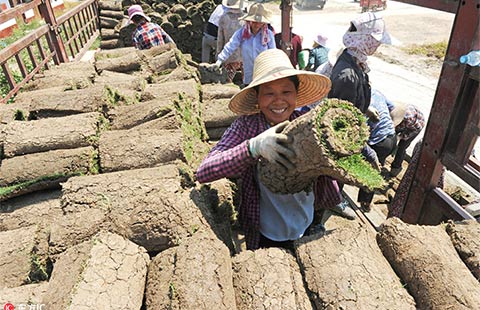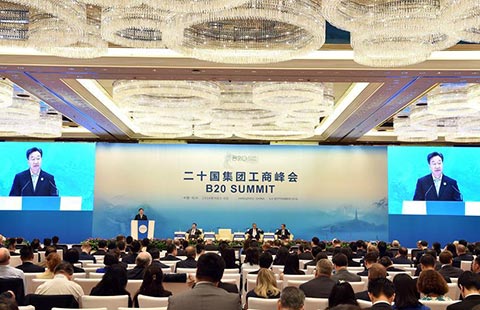Economists pin hope on G20 Summit to boost Egypt's economy
(Xinhua) Updated: 2016-09-05 13:52CAIRO - Egyptian economists and businessmen stressed on Sunday that the G20 Summit being held in the eastern Chinese city of Hangzhou will help Egypt attract more investments to revive its ailing economy.
During a seminar organized by China Today magazine in Cairo, experts discussed the importance of Egypt's participation in the Summit and how the North African country should use it to increase foreign investments.
The recent global economic recession and the possible solutions the Summit would offer were also on the seminar agenda.
Experts stressed that the G20 Summit, with Egypt's participation as a guest of honor, is an opportunity to further Egyptian-Chinese economic partnership.
Mustafa Ibrahim, member of the Egyptian Businessmen's Association, said it is a big opportunity for Egypt to attract larger investments through such a world event, as it would help recover Egypt's economy which has been going down for years.
The two-day G20 Summit opened on Sunday amid multiple risks and challenges, aiming to find a way to bring the world economy back to a healthy growth trajectory.
During his visit to Egypt in January, Chinese President Xi Jinping invited his Egyptian counterpart Abdel-Fattah al-Sisi to attend the G20 Summit in Hangzhou as a guest of honor.
Earlier on Sunday, Xi met with Al-Sisi ahead of the opening of the Summit.
During the meeting, Xi said China steadfastly supports Egypt's effort to maintain stability and explore its own development path in line with its national conditions.
Xi added the two sides should strengthen cooperation in industrial capacity, finance, people's livelihood, environmental protection and infrastructure, and coordinate and cooperate closely in global and regional affairs.
The Egyptian leader expressed the hope to deepen exchanges with China in the fields of industry, telecommunications, technology, agriculture, hydrology, finance, local administration, and human resources.
Since the 2011 uprising, tourists and foreign investors, two major sources of Egypt's hard currency, have been deterred by the political and social unrest in the most populous Arab country.
Egypt's foreign exchange reserves declined from $36 billion in early 2011 to $15.54 billion as of the end of July 2016.
- Beijing to build national sci-tech innovation center
- Chinese president shows leadership through concrete economic proposals
- Journalists cover G20 Summit
- Xi's words at G20 under global spotlight
- Foreign leaders visit Alibaba Xixi HQ
- Go 'glocal,' says Baidu, but in a smart way
- China's heavy truck sales surge in August
- Argentinean entrepreneur hails China's role in fighting poverty

















